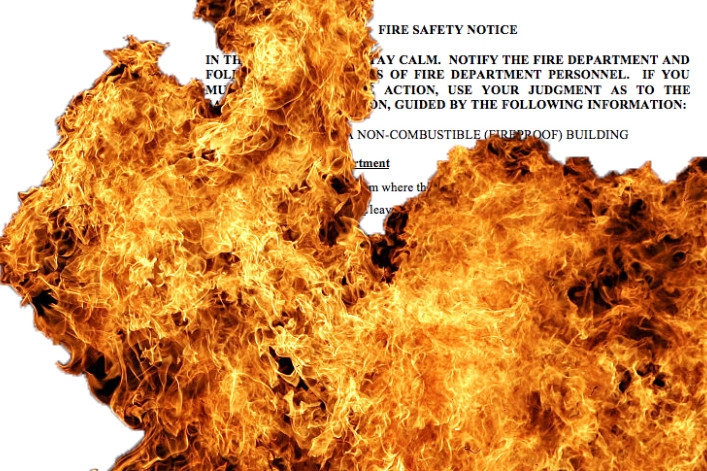What's really scary about New Yorkers and fire safety? Not a Nest smoke alarm

High-tech smoke alarm maker and recent Google acquisition Nest recently halted sales of all new smoke detectors and is disabling its Nest Wave feature over safety concerns, as the New York Observer and others reported today. The New Wave feature lets users turn off their alarms by waving their hands, which apparently is exactly what some people do when their apartment is on fire. Huh.
The news is getting a lot of press, and comes on the heels of a fatal fire this winter at a Midtown high-rise. But a piece published yesterday in Habitat Magazine uncovers some arguably scarier info: according to Jim Bullock, a retired FDNY deputy chief and president of the New York Fire Safety Institute, landlords and co-op and condo boards routinely post inaccurate fire safety information for residents, and mistakes get repeated year after year.
"I have found that 80 to 85 percent of the Fire Safety Guides are incorrect or incomplete," says Bullock, referring to the building-specific instructions that must be handed out to residents once a year.
So what should you do if there's a fire in your building?
That depends. Generally speaking, Bullock tells Habitat, if your building was constructed after April 18, 1929, it's labeled either "fireproof" or "non-fireproof." Most buildings from the last few decades are the former because they use materials like brick, poured concrete and metal, not wood studs.
"In a fireproof building, you only leave if the fire is in your apartment," Bullock says, or possibly if the fire is "close" to your apartment.
Non-fireproof building? "You leave, no matter where the fire is," Bullock says.
Just make sure you pick the right stairwell.
If the fire is below you, running into the wrong or only stairwell "is like running into a house with a fireplace and climbing into the chimney," a former FDNY lieutenant tells Habitat. "It's bad, it's really bad."
Related posts:
When disasters strikes, your apartment insurance can help with temporary housing (sponsored)
Deadbolt, alarm, attack dog: renters pay for their own safety























